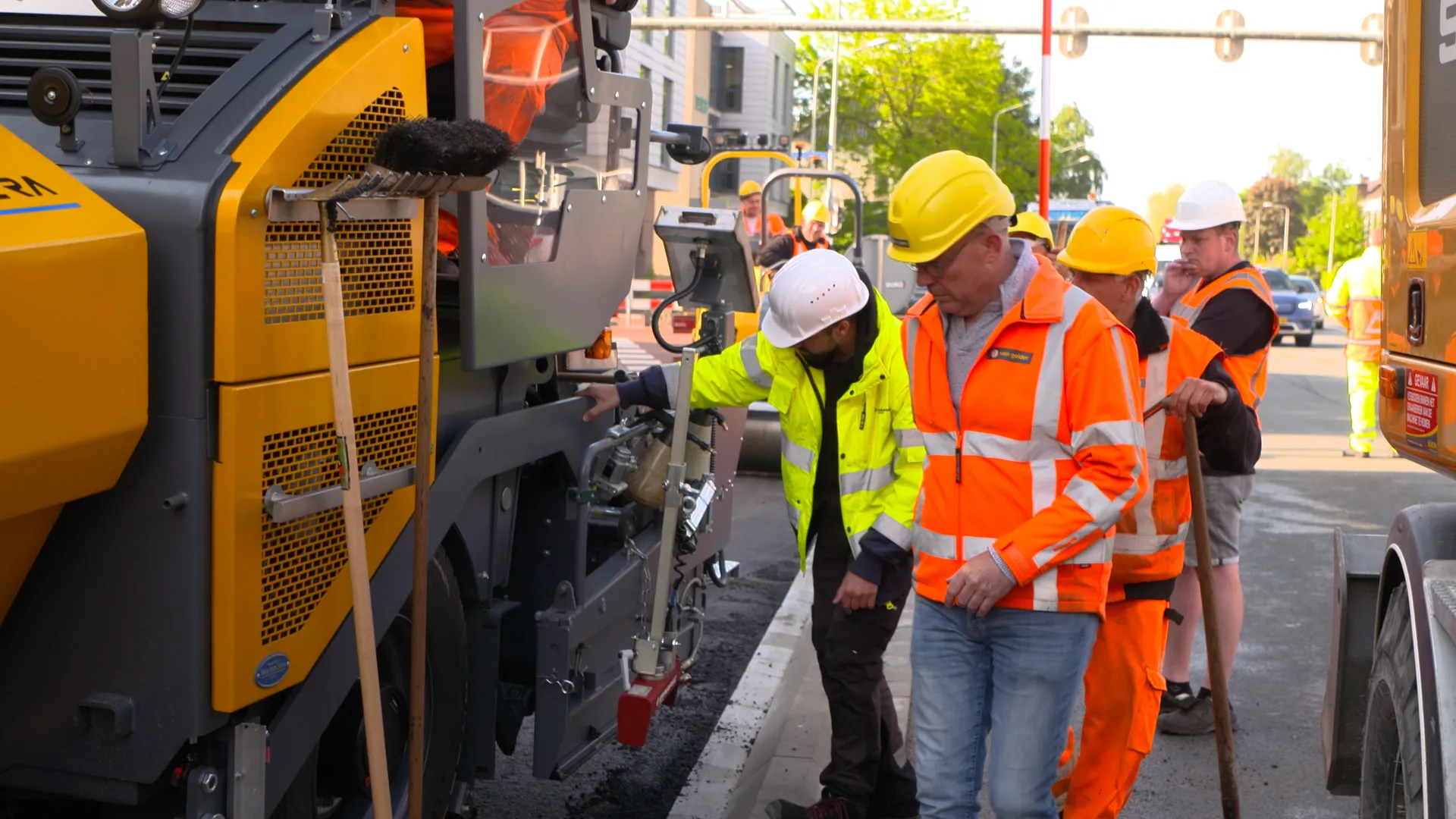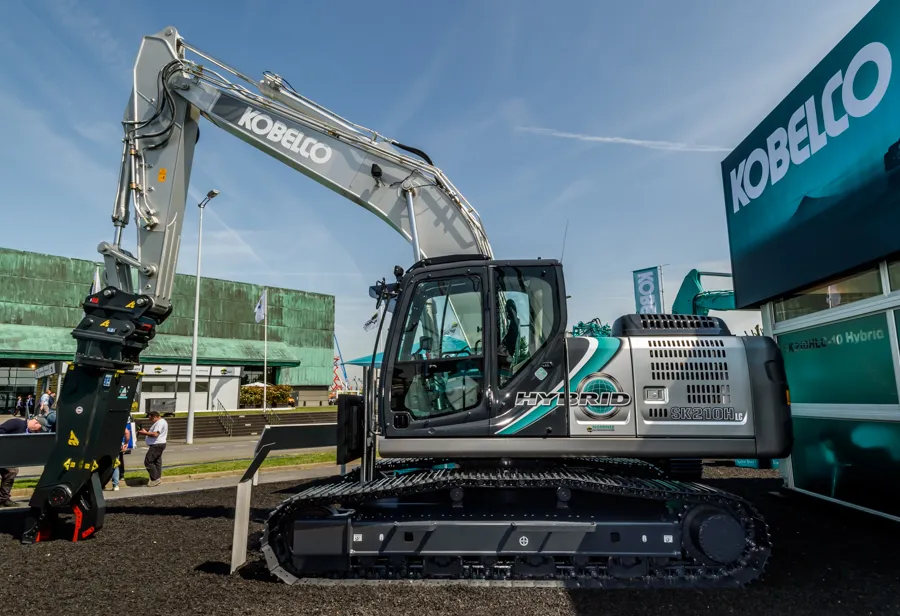
Dynapac reports that its electric paver – the first city e-paver in the world - has proven itself on its first job site in the Netherlands.
Dynapac says that its impressive runtime – up to four hours on a single charge – is made possible by a lithium-ion battery and a powerful 55kW 3-phase permanent magnet synchronous motor (PMSM). The electric city paver can handle both AC and DC charging, with the capacity to charge at speeds of up to 80-100kW.
This fast-charging capability is a game-changer for construction sites with tight timelines, ensuring the machine can quickly recharge during breaks or lulls in activity. The manufacturer says that the electric city paver's adaptability to various charging scenarios demonstrates its practicality and efficiency on construction sites.
The electric city paver's first real-world trial took place on an actual construction site of customer Van Gelder, where its charging and performance capabilities were meticulously assessed. It demonstrated its ability to handle charging speeds of up to 80kW, highlighting its potential for rapid and efficient recharging. Despite minor setbacks, Dynapac says the electric city paver triumphed, completing the day's tasks and underscoring its potential to transform construction practices worldwide.
“The electric city paver exceeded our expectations, proving its performance capabilities and environmental benefits,” Joao Prado, Dynapac product manager. “It is the culmination of years of hard work and dedication. Not only for us but also for the construction industry, the electric city paver represents a significant milestone in the journey toward sustainability.”
Dynapac, headquartered in Wardenburg, Germany, is part of the FAYAT Group and has production facilities in Europe, South America and Asia.
You can watch a video of the e-paver in action by clicking here.






